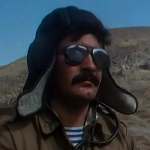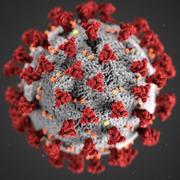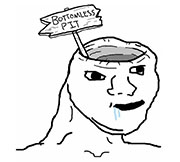|
Set up a rat breeding program to sustain the snakes you set loose in the mines
|
|
|
|

|
| # ? Apr 20, 2024 03:58 |
SerCypher posted:Why buy the cow when you can get the milk for free. Oh god don't ask a Nazi to milk a cow.
|
|
|
|
|
Started looking into Vietnam from the Vietnamese perspective and was wondering if anyone has any interesting suggestions that aren't super dry? Currently reading The Sympathizer but interested in non fiction also.
|
|
|
|
SeanBeansShako posted:Oh god don't ask a Nazi to milk a cow. I would be morbidly interested to see what type of horrific machinery they would design to do it.
|
|
|
|
Abongination posted:Started looking into Vietnam from the Vietnamese perspective and was wondering if anyone has any interesting suggestions that aren't super dry? So there's a lot less in English from a Vietnamese perspective, for obvious reasons, but I have read some good books. Roughly in order of how much I like them. A Vietcon Memoir by Truong Nhu Tang is a candid look at revolutionary war, how it worked, and what it cost from a senior political member of the Viet Cong who found himself locked out of real power by the victorious North Vietnamese, and who eventually escaped as a refugee unhappy with how the victory turned out. Last Night I Dreamed of Peace by Dang Thuy Tram is the diary of an NVA doctor who was killed in action. The diary was recovered by an American intelligence analyst, who returned it to Thuy's family in 2005. It was published to popular acclaim and massive sales in Vietnam, and it's a remarkable book. The Sorrow Of War by Bao Ninh is Vietnam's reply to Tim O'Brien. You might remember Bao Ninh from Ken Burn's The Vietnam War, and this novel is a non-linear journey by soldier Kien though deadly grinder of war and its consequences. The Perfect Spy: The Incredible Double Life of Pham Xuan An Time Magazine Reporter and Vietnamese Communist Agent by Larry Berman is exactly what it says. Pham Xuan An lived two lives. In one, he was good friend to every American reporter and key source for context on what was happening. In the other life, he was Intelligence Network H.63, three times Hero of the People's Armed Forces, who access, to paraphrase General Giap, made it seem like the Communists had a seat at American war councils. Hanoi's War: An International History of the War for Peace in Vietnam by Lien-Hang T. Nguyen is a diplomatic history focusing on the decisions of Le Duan and Le Duc Tho as they lead North Vietnam through the war. Nguygen is one of the first Western trained scholars to do research in the Vietnamese archives, and while dry its one of the few books of its kind. The Tunnels of Cu Chi by Tom Mangold and John Penycate focuses on tunnel warfare, and is roughly evenly split between US and Vietnamese voices. It's also a fascinating history, if a very narrow one. The Red Earth: A Vietnamese Memoir of Life on a Colonial Rubber Plantation by Tran Tu Binh is an account of a strike on a French rubber planation in 1930, which was originally commissioned as a book by the North Vietnamese government in the early 1960s as part of an effort to document the lives and struggles of the Old Comrades as the country entered a new war. It's a pretty engaging tale, and I like it as a look at what the Vietnamese Communist Party considered their history. When Heaven and Earth Changed Places by Le Ly Hayslip is a memoir from a woman who grew up in Vietnam during the war, suffered immensely, and eventually made it to the United States by marrying an American. It's been ages since I read it, but it was one of the books assigned in a college Vietnam War class and I liked it enough to cart it around with me.
|
|
|
|
Biffmotron posted:So there's a lot less in English from a Vietnamese perspective, for obvious reasons, but I have read some good books. Roughly in order of how much I like them. Fantastic, thank you. Should keep me going for a while
|
|
|
|
Abongination posted:Fantastic, thank you. War Comes To Long An is another recommendation. It came out in 1972 so it's not strictly from the North Vietnamese perspective but it's about the late 50s into the early 60s and the revolutionary clashes between the early Viet Cong and the South Vietnamese government, when the Americans were still there in an advisory capacity. The author has extraordinary sourcing and interviewed tons of folks including Viet Cong and North Vietnamese POWs and defectors along with South Vietnamese officials, American advisors, and so forth, and it focuses on a specific province in South Vietnam and how the insurgency was established and grew there, both politically and militarily. It's a remarkable document especially given that it was written mid-war - I can't possibly imagine someone reading it and coming out of it thinking that Americans should be doing anything but getting out of Vietnam as quickly as possible. It's one of the best books about insurgency and civil war I've ever read.
|
|
|
Hunt11 posted:I would be morbidly interested to see what type of horrific machinery they would design to do it. Imagine each horrible scenario for that cow as every competing Nazi and their departments rush to extract milk. Most end with the cow dead or somehow worse by many means with the milk barely extracted, not extracted at all (but spinned to be a good thing) or somehow tracked and on fire.
|
|
|
|
|
Regarding Vietnamese histories of the Vietnam War, while it might be a little dry for your taste, the PAVN wrote an official history of itself, and the war years have been translated into English as "Victory in Vietnam: The Official History of the People's Army of Vietnam, 1954-1975".
|
|
|
|
aphid_licker posted:Yeah I was thinking more like the Nazis invade Sweden for whatever reason and the Swedes decide to leave them a little gently caress YOU at Kiruna. It might have been the French and the British who were more likely to invade Kiruna for its Ųre to deny it for the Germans. At least far more likely than seems in hindsight. Like what the British did in Narvik was some half-hearted attempt after they were upstaged by Germany. I'd put smilies of Sweden and Finland here if I could bear clicking that "smilies" button again. Heh, "bear".
|
|
|
|
it would probably have been a longer fight than denmark had
|
|
|
|
No fair, their country is bigger (and also they didn't send all their officers in hiding in a neighbouring country.. and also probably would commit all their forces intead of a speedbump of conscript kids, so they could save face and say they fought)
|
|
|
|
Abongination posted:Started looking into Vietnam from the Vietnamese perspective and was wondering if anyone has any interesting suggestions that aren't super dry? Maybe not quite what you're looking for, but there's a great little indie podcast called Inward Empire that does US history. There's a 5 part series called the The Diem Experiment, which I found to be a pretty interesting perspective. I've only listened to the first two episodes of the series but everything this guy does is very high quality and not dry at all. https://inwardempirepodcast.podomatic.com/
|
|
|
|
Hunt11 posted:I would be morbidly interested to see what type of horrific machinery they would design to do it. The cow's nipples are tender and require a firm but soft Prussian grip.
|
|
|
|
To be quite honest, our contemporary capitalist cattle industry is a perfect house of horrors as is. I doubt even Nazis could have made it worse - and they industrialized the slaughter of human beings!
|
|
|
|
Medium Tank T23 Turns out the first Myth of Soviet Tank Building and GMC M10 were already done, so I'm taking them off the list. Queue: Tiger II predecessors, Pz.Kpfw.IV Ausf.H-J,IS-6, SU-101/SU-102/Uralmash-1, Centurion Mk.I, SU-100 front line impressions, IS-2 front line impressions, Myths of Soviet tank building: early Great Patriotic War, Influence of the T-34 on German tank building, Medium Tank T25, Heavy Tank T26/T26E1/T26E3, Career of Harry Knox, GMC M36, Geschützwagen Tiger für 17cm K72 (Sf), Early Early Soviet tank development (MS-1, AN Teplokhod), Career of Semyon Aleksandrovich Ginzburg, AT-1, Object 140, SU-76 frontline impressions, Creation of the IS-3, IS-6, SU-5, Myths of Soviet tank building: 1943-44, IS-2 post-war modifications, Myths of Soviet tank building: end of the Great Patriotic War, Medium Tank T6, RPG-1, Lahti L-39, American tank building plans post-war, German tanks for 1946, HMC M7 Priest, GMC M12, GMC M40/M43, ISU-152, AMR 35 ZT, Soviet post-war tank building plans, T-100Y and SU-14-1, Object 430, Pz.Kpfw.35(t), T-60 tanks in combat, SU-76M modernizations, Panhard 178, 15 cm sFH 13/1 (Sf), 43M ZrŪnyi, Medium Tank M46, Modernization of the M48 to the M60 standard, German tank building trends at the end of WW2, Pz.Kpfw.III/IV, E-50 and E-75 development, Pre-war and early war British tank building, BT-7M/A-8 trials, Jagdtiger suspension, Light Tank T37, Light Tank T41, T-26-6 (SU-26), Voroshilovets tractor trials. Available for request (others' articles):  Shashmurin's career T-55 underwater driving equipment T-64's composite armour Oerlikon and Solothurn anti-tank rifles Evolution of German tank observation devices
|
|
|
|
Abongination posted:Started looking into Vietnam from the Vietnamese perspective and was wondering if anyone has any interesting suggestions that aren't super dry? When Heaven and Earth Changed Places by Le Ly Hayslip. Oliver Stone made a bad movie about this, but the book is good. It's an autobiography of a young woman in Vietnam. Her home village is wrecked by the US and she fights for the VietCong, but ends up emigrating the the States at the war's close. It's not a pleasant read (all kinds of trigger warnings!) but it's well worthwhile to get the perspective of someone caught in that hell. Last Night I Dreamed of Peace: The Diary of Dang Thuy Tram. This was the personal diary of a woman doctor who was with the VietCong. It is - well, anything I say is going to be a big ol' spolier, but - just read it. Again, trigger warnings here. Edit: drat, Biffmotron beat me to it. Edit 2: I'll add another vote for War Comes to Long An.
|
|
|
|
Biffmotron posted:The Tunnels of Cu Chi by Tom Mangold and John Penycate focuses on tunnel warfare, and is roughly evenly split between US and Vietnamese voices. It's also a fascinating history, if a very narrow one. Skip this one. It's chock full of historical inaccuracies. It's the "Stephen Ambrose" of Vietnam.
|
|
|
|
Cessna posted:Skip this one. It's chock full of historical inaccuracies. It's the "Stephen Ambrose" of Vietnam. Yeah, it, and a lot of media focus has really gotten people thinking Vietnam was covered in tunnels which vastly overstates what they were and their extent. I mean, it makes for a very claustrophobic, striking movie scene but most movement, both operational and tactical by VC units were done on the ground, by roads, trails, just like anyone else who went around in that country.
|
|
|
|
Count Roland posted:Just use a cruise missile. In the Colder War timeline we developed MK PLUTO for that. Many megatons pointed right at ol' tentacle face. Didn't work, more's the pity.
|
|
|
|
Anyone have thoughts on Vo Nguyen Giap? Military genius or not, strengths and weaknesses, basically I'm interested in the guy in the context of military theory and wondering where he fits in.
|
|
|
|
EggsAisle posted:Anyone have thoughts on Vo Nguyen Giap? Military genius or not, strengths and weaknesses, basically I'm interested in the guy in the context of military theory and wondering where he fits in. Sure, so, the first thing to understand about Giap is that almost his entire impact was on the French Indochinese war- once the country got split in half, a lot of shuffling in the Northern camp left both him and Ho Chi Minh in largely ceremonial posts. Giap had more pull than Ho, and had some say in the organization of the PAVN throughout the US part of the war, but they were both relatively marginal figures in terms of actually making strategic or operational decisions at that point. Giap played a large role in building the Viet Minh as a conventional-ish light infantry force, giving them enough striking power to threaten positions while also being able to evade enemy offensive action. Much of the 'big war' during the French period took place in the north of the country, where they could hide in the highlands and receive supply from the PRC. The first few years of the war were a bit less intense, but once the Communists gained control of China to the Vietnamese border, the Viet Minh were able to take a more conventional stance and gained access to tools like artillery. This led them to launch offensives that often didn't go all that well. Through 1950-52, Giap tried offensives against the French with mixed success- the de Lattre line(a large scale fortified perimeter around Hanoi and its environs) stymied him every time he challenged it but he was able to maintain control outside it. I think this experience is what would lead Giap to later advocate a more passive strategy once the Americans arrived- their ability to defend lines like that would far exceed the French and their capacity for airmobility dwarfed what the French could do, making anything like Dien Bien Phu impossible. Which, speaking of, Giap made a fairly effective strategic pivot into Laos after finding the de Lattre line to be difficult to breach, forcing the French to respond with the forces they could. The problem for the French was that they already had a fairly limited amount of force available, and it would not really be feasible to launch a truly solid incursion into Laos from land, given their needs elsewhere. Knowing this, the French decided to make a play to cut Viet Minh supply to possibly allow for offensive operations from the de Lattre line. Giap sniffed this out fairly quickly but it took time for the Viet Minh to get into position to punish this dispersal, and this did end up being his finest moment as a general. As I said before, once the North gained independence, Giap had less of a say in strategic decisions, he definitely made some organizational choices in the years between the French and US direct involvement, but Le Duan and the politburo made almost all the real decisions. Giap unsuccessfully advocated a pause in offensive activity while the US made its presence felt. It is difficult to tell what a more protracted approach would've led to. It's very possible that it would have allowed the VC to remain a significant part of the war for longer, giving Hanoi more options later in the conflict, though it's also possible that a passive approach would've made it easier for Westmoreland to claim he was making progress. Regardless, Hanoi took a more aggressive approach, launching offensives throughout 1965 and 1966, only pausing in 1967 to prepare for the Tet Offensive. After that, Hanoi had far fewer options for offensives as their semi-conventional VC main force units no longer existed as such, thusly they had to focus more on conventional attacks along more predictable lines. I would say Giap was a capable general, given the instruments he had at hand, definitely very astute, though given the limitations of Vietnamese sources, we're not really sure what involvement he did have during the US period of the war, though it is very likely that it was not much.
|
|
|
|
Panzeh posted:Sure, so, the first thing to understand about Giap is that almost his entire impact was on the French Indochinese war- once the country got split in half, a lot of shuffling in the Northern camp left both him and Ho Chi Minh in largely ceremonial posts. Giap had more pull than Ho, and had some say in the organization of the PAVN throughout the US part of the war, but they were both relatively marginal figures in terms of actually making strategic or operational decisions at that point. This is all really fascinating thank you. Are the Vietnamese archives mostly closed off or is there on-going research? What I mean is, it seems like there isnít all that much info on North Vietnamese government decision making during the American War years, and Iím wondering if itís a lack of access to the archives or a lack of proper translation.
|
|
|
|
Solaris 2.0 posted:This is all really fascinating thank you. We never really got a version of the Pentagon Papers for Hanoi, so we don't have a great deal of understanding of their high level decision making. Hanoi's War is the best resource on it, but there's still plenty to find. The archives are generally quite accessible, but the translation and scale of the task is difficult. There are some major parts translated, like the PAVN official history, but it's tough to tell what you don't have when you don't really have as much of the archive translated. The logistics of getting that done are quite difficult. It's very possible that there's some Pentagon Papers-esque stuff in the archives, but I kinda doubt it's accessible. There's plenty of intra-party beefs and such as well, and the PAVN official history definitely has some distortions based on that. Anyway, there's still a lot of work to be done with Vietnamese archive material. Of some interest is that there's also a lot of South Vietnamese government documents and records in the Vietnamese archives that would be of interest to historians.
|
|
|
|
I checked the foreward to Hanoi's War, and Nguyen says that while the top level archives of the Party, Foreign Ministry, and Military are closed to scholars, and likely will be, a ton of material is available in lower level archives, often including extracts of what's in the closed troika archives and including much of South Vietnam's government records. But it's not translated, and from how Nguyen describes it, often involves trawling through a bunch of mundane and irrelevant administrivia in the hopes that some of it will reproduce a fragment that you're looking for in a closed official source. Historians have a lot of patience.
|
|
|
|
So we'd need someone to dig out and sort through the documents in the first place, which is a lot of work in of itself, and then a (team of) Vietnamese Ensign Expendable(s) to translate it. Seems like a long shot. Thanks for the write-up about Giap, by the way- I knew he was active in fighting the French, but didn't realize he'd been sidelined by the time the Americans got involved. I always thought he was still calling the shots through the 60's. Was his stepping back voluntary, or were some kind of party politics at play?
|
|
|
|
It feels like reading this thread that like at all times 90% of all history is locked away in a basement somewhere and that 90% is the 10% that didn't get burnt to ash either in 1945, 1258, 642, 272, or in -48.
|
|
|
|
EggsAisle posted:So we'd need someone to dig out and sort through the documents in the first place, which is a lot of work in of itself, and then a (team of) Vietnamese Ensign Expendable(s) to translate it. Seems like a long shot. There was a shakeup in 1954-55, and the main beneficiaries were southerners who didn't have to sit through the purges and arrived just in time to get into Politburo positions, Le Duan being the biggest one. Giap and Ho were too prominent to outright be purged out, but they no longer had executive power.
|
|
|
|
Panzeh posted:There was a shakeup in 1954-55, and the main beneficiaries were southerners who didn't have to sit through the purges and arrived just in time to get into Politburo positions, Le Duan being the biggest one. Giap and Ho were too prominent to outright be purged out, but they no longer had executive power. Itís not quite milhist, but is there a general overview of the power structures during/post Vietnam war. Who was purging who etc.?
|
|
|
|
Panzeh posted:There was a shakeup in 1954-55, and the main beneficiaries were southerners who didn't have to sit through the purges and arrived just in time to get into Politburo positions, Le Duan being the biggest one. Giap and Ho were too prominent to outright be purged out, but they no longer had executive power. It's fairly interesting, in the recentish documentary by Burns, they said this somewhat. That Giap and Ho were sidelined by the Southern communists who wanted to focus on unification, as opposed to the Northerners who wanted to draw back the military involvement in the South and focus on the economy instead. And they brought Giap back, after the disasters of -68?
|
|
|
|
EggsAisle posted:So we'd need someone to dig out and sort through the documents in the first place, which is a lot of work in of itself, and then a (team of) Vietnamese Ensign Expendable(s) to translate it. Seems like a long shot. yeah same here, i also thought that he was some sort of mastermind who kicked americans out
|
|
|
|
iv46vi posted:Itís not quite milhist, but is there a general overview of the power structures during/post Vietnam war. Who was purging who etc.? Nothing like that, much of what we know we know mostly by inference. There's no Vietnamese Pentagon Papers. If the Pentagon Papers didn't exist, we'd have to lean a lot more on inference for Johnson's decision-making, too. Grimnarsson posted:It's fairly interesting, in the recentish documentary by Burns, they said this somewhat. That Giap and Ho were sidelined by the Southern communists who wanted to focus on unification, as opposed to the Northerners who wanted to draw back the military involvement in the South and focus on the economy instead. And they brought Giap back, after the disasters of -68? The doc is alright, and it has a better read on politics than other takes, though I think playing up the Northerner-Southerner thing is probably trying to heroize Giap and Ho. Giap did have a genuinely different strategic take, but there's not really a genuine change of strategy until into 1969 when the NLF decides to stop doing small offensives as the mini-Tets mostly served to drain manpower with little strategic effect. If Giap had more influence then, he'd be mentioned more in the official history. You wouldn't really see the fruits of that strategy until the 1972 Easter Offensive, as the NVA was distracted in Cambodia and after that had to put all hands on deck to deal with Lam Son 719. That being said, it's certainly better than other books and docs on the war, but Ken Burns still kinda has the Vietnam as American Morality play vibe you get, however they actually feel about US involvement. Either "We could've defeated them with this One Weird Trick, usually the Savannakhet plan, a 4-division invasion of Laos to block the Ho Chi Minh trail", or "They defeated us with this One Weird Trick we hadn't encountered before, guerilla warfare"
|
|
|
|
If you want to understand more about what's so challenging about accessing the archives in Hanoi, there's an interview with someone who's done it for a couple decades here; Interview with Pierre Asselin, author of "Vietnam's American War: a History" from the podcast "New books in military history", episode 323 November 18 2019. https://podbay.fm/p/new-books-in-military-history/e/1574067600 Bloody annoying to find a direct link btw, easiest is to search for it in a podcast app
|
|
|
|
So with the Tet offensive, did the Vietnamese Politburo actually think this offensive is what would cause a general uprising? Did their commitment to big offensives have anything to do with the fact that it was potential rivals who were doing the fighting?
|
|
|
|
Nebakenezzer posted:So with the Tet offensive, did the Vietnamese Politburo actually think this offensive is what would cause a general uprising? Did their commitment to big offensives have anything to do with the fact that it was potential rivals who were doing the fighting? Most of the dying in the offensives was done by soldiers who wouldn't really be threatening any future regime anyway. In fact, for example, an offensive in Tay Ninh in 1966 was commanded by a man who would later run a corps in 1974 and a military region in the war with Cambodia. We can't truly know what Le Duan thought, but I believe that they genuinely thought it would work- that offensives reaching into the urban zones would be able to take them and cause a Dien Bien Phu-like military disaster that would force the US out. Tet(and the offensives) as a subtle way to purge some kind of splitting faction seems not very plausible as an explanation for that strategy. I believe they genuinely thought they would be able to inflict some kind of disaster on US troops. In retrospect, we know the US operational mobility really prevented anything like that, but at the time, it would be difficult for anyone to know that.
|
|
|
|
Panzeh posted:I would say Giap was a capable general, given the instruments he had at hand, definitely very astute, though given the limitations of Vietnamese sources, we're not really sure what involvement he did have during the US period of the war, though it is very likely that it was not much. I was going to make a bunch of big long posts, but you've said what I wanted to say.
|
|
|
|
Panzeh posted:We can't truly know what Le Duan thought, but I believe that they genuinely thought it would work- that offensives reaching into the urban zones would be able to take them and cause a Dien Bien Phu-like military disaster that would force the US out. Another point is that Le Duan was himself from the South - Quang Tri, specifically. I do not think that he wanted to somehow sacrifice the (mostly southern) VietCong in order to reduce their potential for political rivalry; he was, as it were, "one of them" himself. Cessna fucked around with this message at 16:10 on Apr 13, 2021 |
|
|
|
ThisIsJohnWayne posted:If you want to understand more about what's so challenging about accessing the archives in Hanoi, there's an interview with someone who's done it for a couple decades here; Interview with Pierre Asselin, author of "Vietnam's American War: a History" from the podcast "New books in military history", episode 323 November 18 2019. I'm listening to this podcast now and it is fascinating. It seems like the Vietnamese government is pretty open about access to anything pre-1954 so researching the French Indochina war or the colonial period in general is "easier". But they are a lot more restrictive with what you can access post 1954.
|
|
|
|
Panzeh posted:Giap etc This was awesome. Giap has gained a pretty serious group of fans among current US military officers, and for good reason. He was arguably the first real practical employer of what we now call hybrid warfare, so a lot of military academics are kind of obsessed with him as a sort of visionary, way ahead of his time, etc. Plus he was just a pretty hard dude in general. It is interesting you point out his relative lack of involvement in the US war -- I think part of the current fascination with him is he's largely been ascribed as the general that beat the might US military and thus must be kind of a superman. Which, as it turns out, is not entirely accurate. In conclusion, looking forward to fighting alongside our Vietnamese allies when the great war with China finally comes around.
|
|
|
|

|
| # ? Apr 20, 2024 03:58 |
|
bewbies posted:It is interesting you point out his relative lack of involvement in the US war -- I think part of the current fascination with him is he's largely been ascribed as the general that beat the might US military and thus must be kind of a superman. Which, as it turns out, is not entirely accurate. This was certainly my perspective as a dilettante, glad to be disabused of a false notion.
|
|
|




































